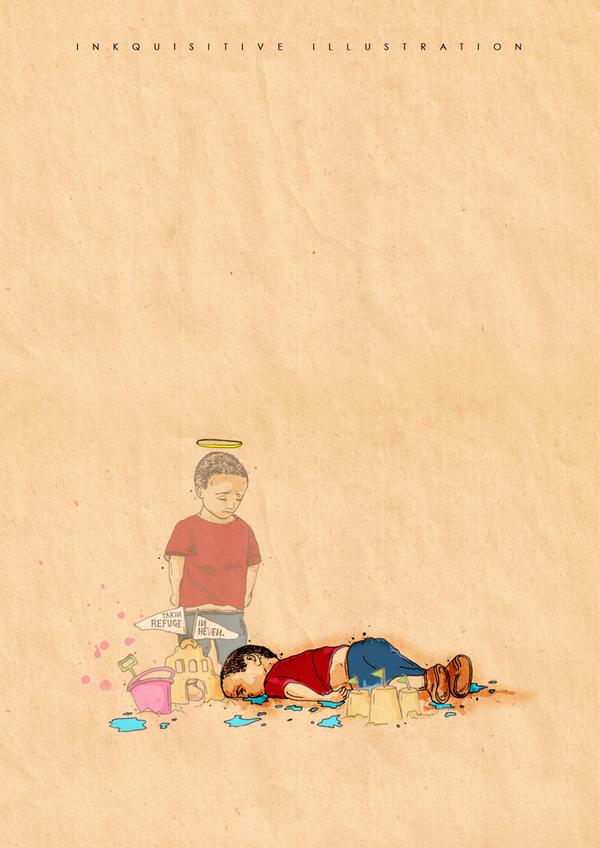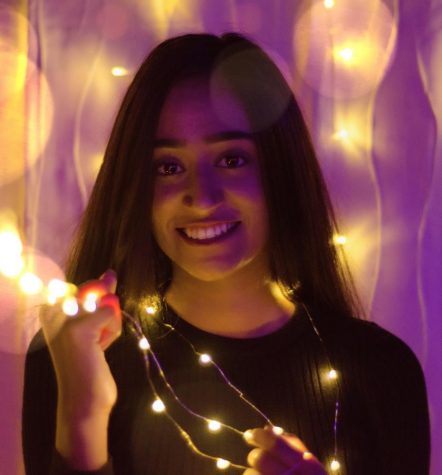Humanity Washed Ashore
Kiyiya Vuran Insanlik
September 24, 2015
The world finally took notice of the worst humanitarian crisis in Europe in 70 years when three year old Aylan Kurdi’s body washed up on a Turkish beach on September 2. The photograph has forced Europe to confront the consequences of their collective failure in helping refugee migrants fleeing the Middle East and Africa to Europe in search of safety, hope, and opportunity.
Aylan has personalized the tragedy facing the 11 million Syrians that have been displaced by more than four years of war. It has hit home, perhaps even more than the anonymous, decomposing corpses of migrants found a truck in Austria, an incident that had shocked Europe two weeks ago. “Once in awhile, an image breaks through the noisy, cluttered global culture and hits people in the heart and not the head,” stated Professor Douglas Brinkley, who teaches history at Rice University.
Turkish officials told The Associated Press that at least 12 migrants, including Aylan and four other children, drowned off the Turkish coast when the two boats carrying them to the Greek island of Kos had capsized.
Abdullah and Rehan Kurdi, Aylan’s parents, wanted a better life for him and his 4-year-old brother, Ghalib, than they had in Kobani, Syria. They wanted a safe home –what anyone wants. This is why hundreds of thousands of people are fleeing violence in hopes of a new life in Western Europe. Aylan, his brother, and his mother drowned trying to make their dream a reality. The father of the family, Abdullah, survived the trip. But he stated that he had nothing left to live for in an interview with CNN: “I don’t want anything else from this world. Everything I was dreaming of is gone. I want to bury my children and sit beside them until I die.”
This tragic story touched the world, and even students here at YLHS have something to say about it. “I think Aylan’s story shows how chasing the dream of escaping from the civil war in Syria is almost near to impossible for migrants. The innocent boy and his family were only trying to find a life outside of destruction; but, in the meanwhile, the boy, his brother, and his mother drowned in trying to make their dream a reality,” states Nikita Vasoya(11).
“KiyiyaVuranInsanlik,” meaning “humanity washed ashore,” was among Twitter’s top trending topics on Thursday, September 3. It had been tweeted over 200,000 times in the span of 24 hours. Other tags, such as “where children die in the world,” had also trended. French President, Francois Hollande, stated that the photo of the boy called upon Europe’s conscience.
“An image goes around the world and brings out emotion. It is shared. Europe is a group of principles, of values which oblige us to welcome those who are pushed out and look for refuge because they are persecuted.”
He also stated that some of the 4 million displaced people in Syria have been “welcomed by neighboring countries that are themselves suffering(CNN).”
In August alone, aid groups estimate around 2,000 people a day have been crossing into Greece’s eastern islands on rubber boats. And the U.N. Human Refugee agency says more than 2,500 people have died this year trying to cross the Mediterranean Sea.
Backed by the European Commission, Germany has been pushing for a quota system to divide the people reaching Europe between member states, but this has been opposed by several eastern members. Hungary stated that even though it has temporarily relaxed restrictions on the transit of asylum seekers, it was pressing on plans to tighten border control and could send troops to its southern frontier if parliament was in favor.
Debates emerged over whether the shocking picture of the migrant boy’s death would change the way Europe views its refugee crisis. The demand to lift restrictions on asylum laws also pushed further after the picture emerged. The “Refugees Welcome” tag, which discussed Germany’s relaxation of restrictions, gained an additional 74,000 tweets, and nearly 20,000 more users tweeted “People Not Migrants”. Many more refugee migrants are expected to arrive in Germany, with the German government saying they estimate 800,000 migrants will come to the country in the next 12 months.
A petition on the UK Parliament’s website calling on the government to “accept more asylum seekers and increase support for refugee migrants in the UK” had a rapid surge in signatories and now stands at 240,000 signatories, 140,000 over the threshold for Parliament to consider a topic for a debate.
Germany temporarily lifted its rules to allow in refugees on September 7th. Migrants poured into Munich, where there’s München Hauptbahnhof, which is a big train station. This is where people looking for new lives in Germany arrived first. As well as the usual cafes, restaurants, and shops you’d expect to find around a train station, there is also a refugee center designed to meet the needs of the migrants. As soon as they step off the train, people from countries such as Syria, Eritrea, and Libya are met by volunteers speaking to them in a range of different languages.
The people were handed new coats, shoes, warm coffee, and something to eat. Many locals that had come to help, watched and applauded the selfless efforts of police officers, paramedics, and firemen who all helped the refugees.
“They look tired but happy to have arrived somewhere where they feel welcome. There are people of all ages from small babies to grandparents here. Some have travelled with relatives or friends, others have made the journey on their own. Many are carrying a few belongings in single plastic bags – all they have left of the lives they led before,” wrote Steffan Powell, a BBC Newsbeat reporter in Munich.
In Germany, buses were to take them into refugee camps around the city, in nearby towns and in other parts of the country. They will be staying at reception centers for up to six weeks, and a maximum of three months, before getting re-housed. German Chancellor, Angela Merkel, stated the experience will change the country and that other European countries need to do more to help deal with the situation (bbc).





































